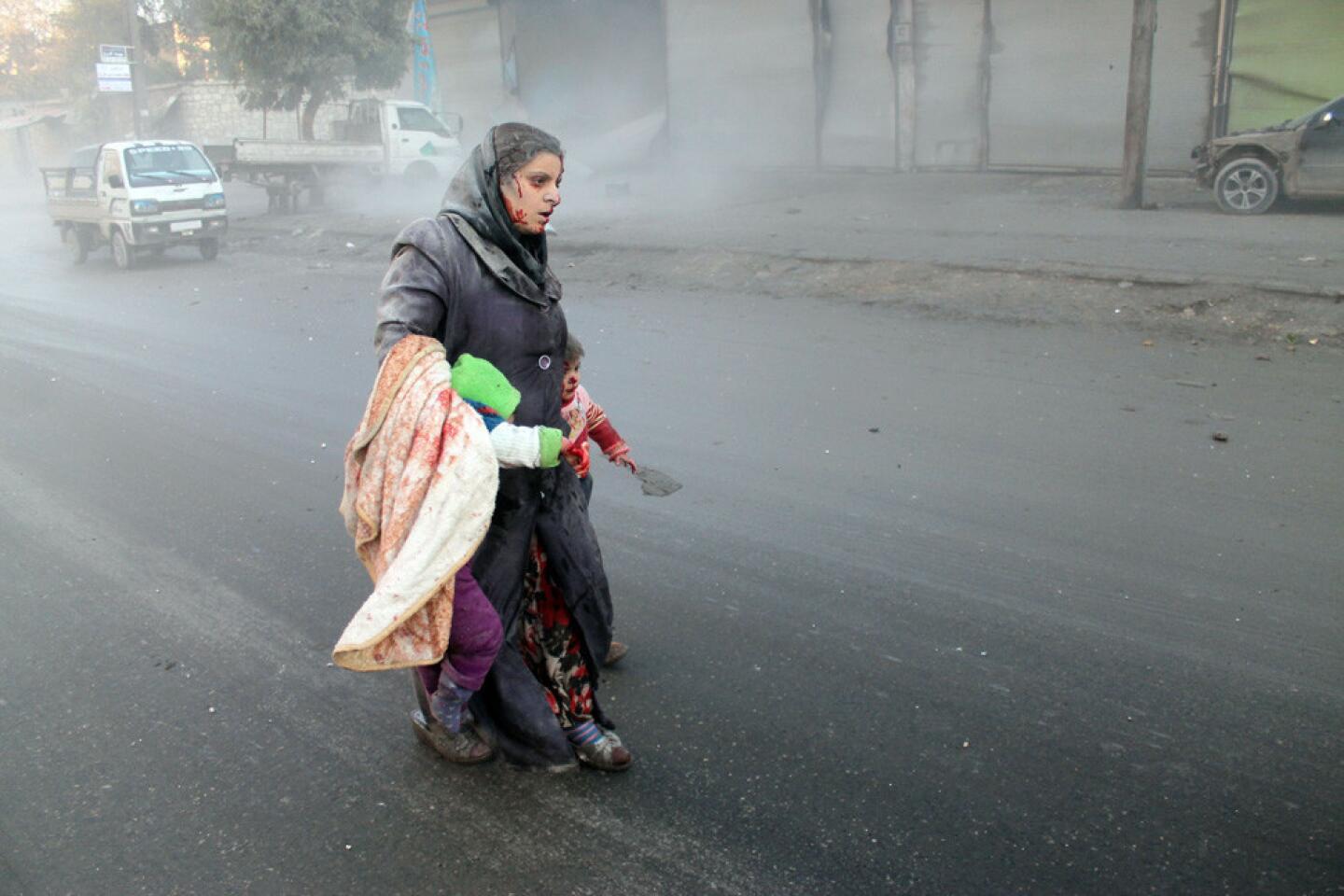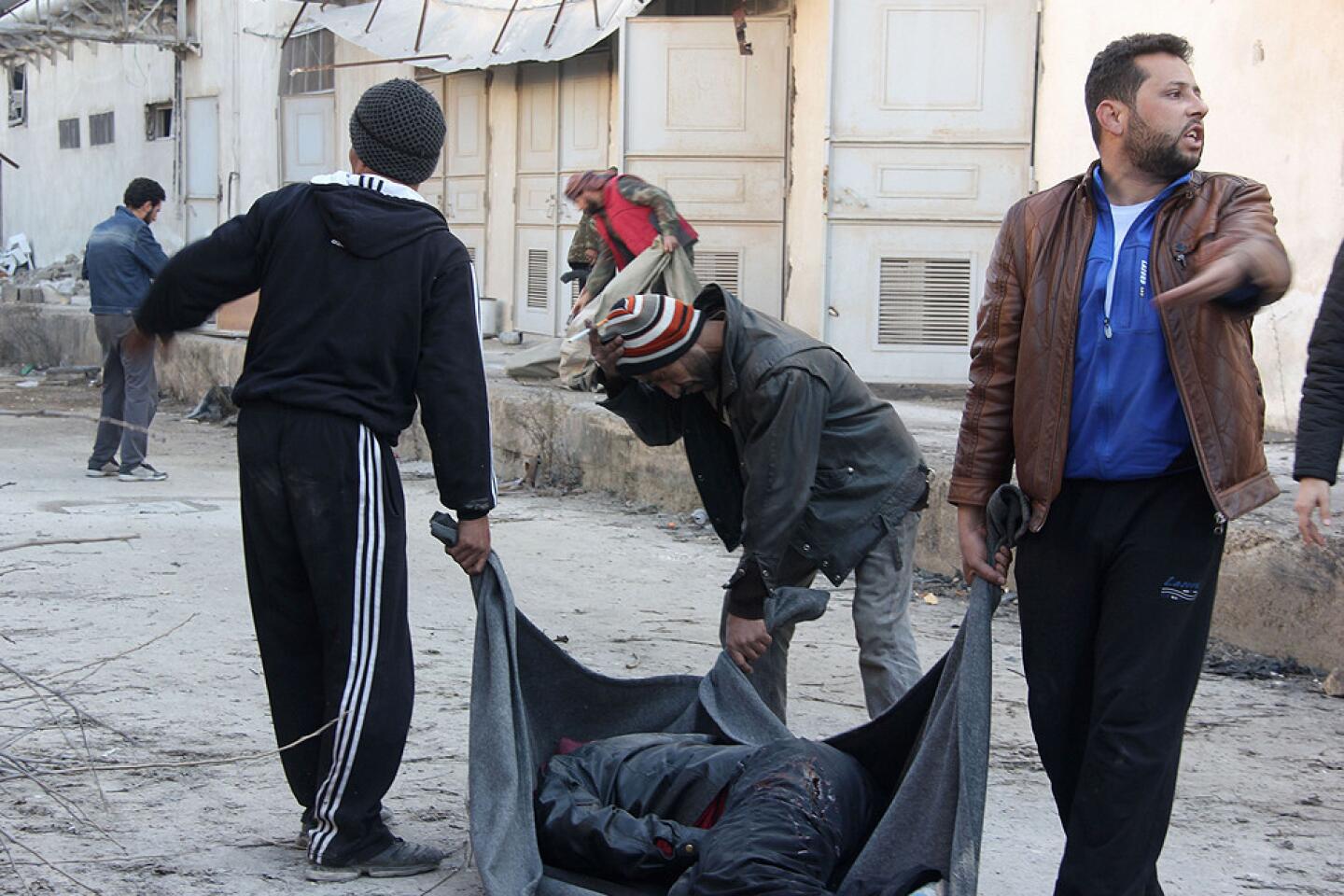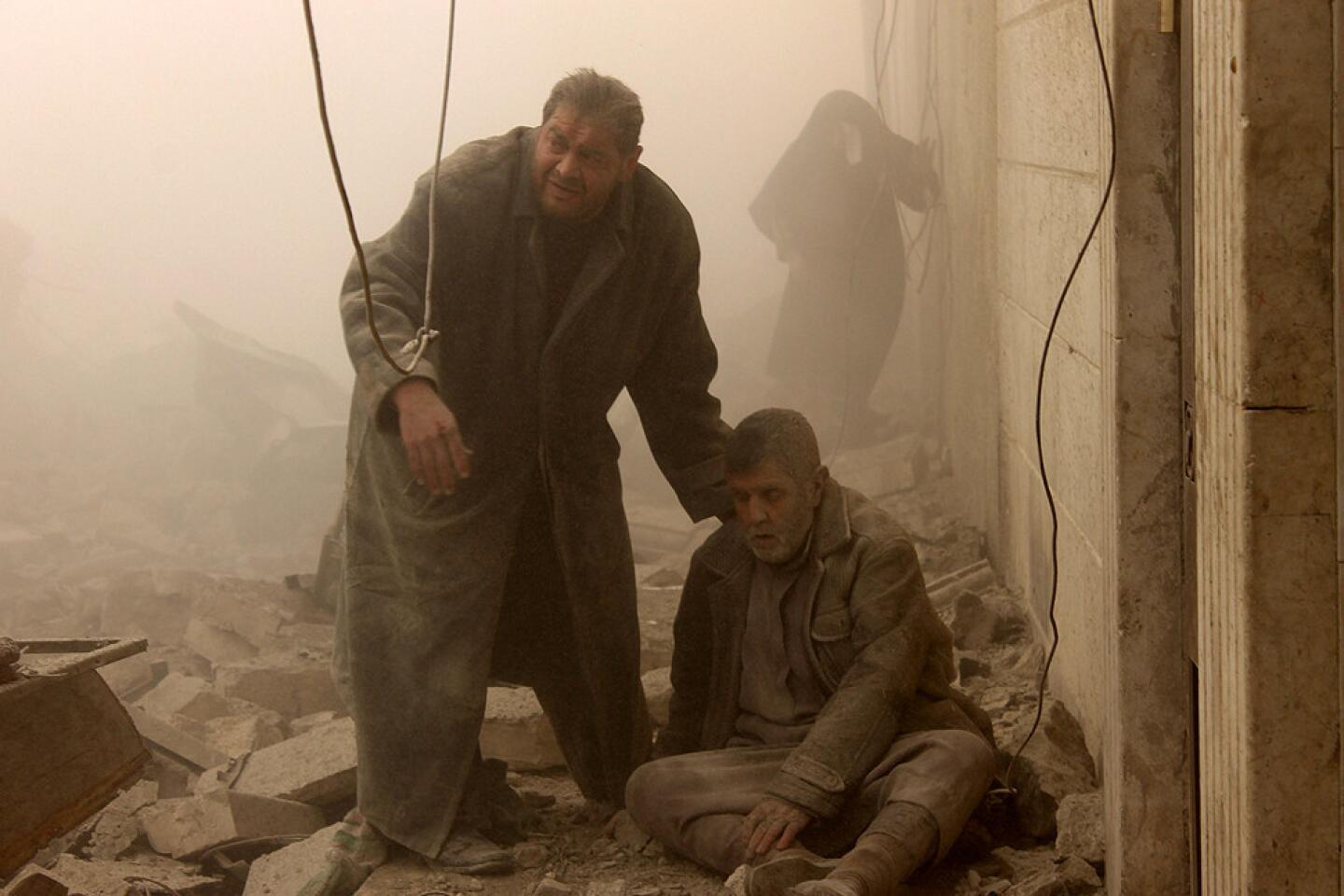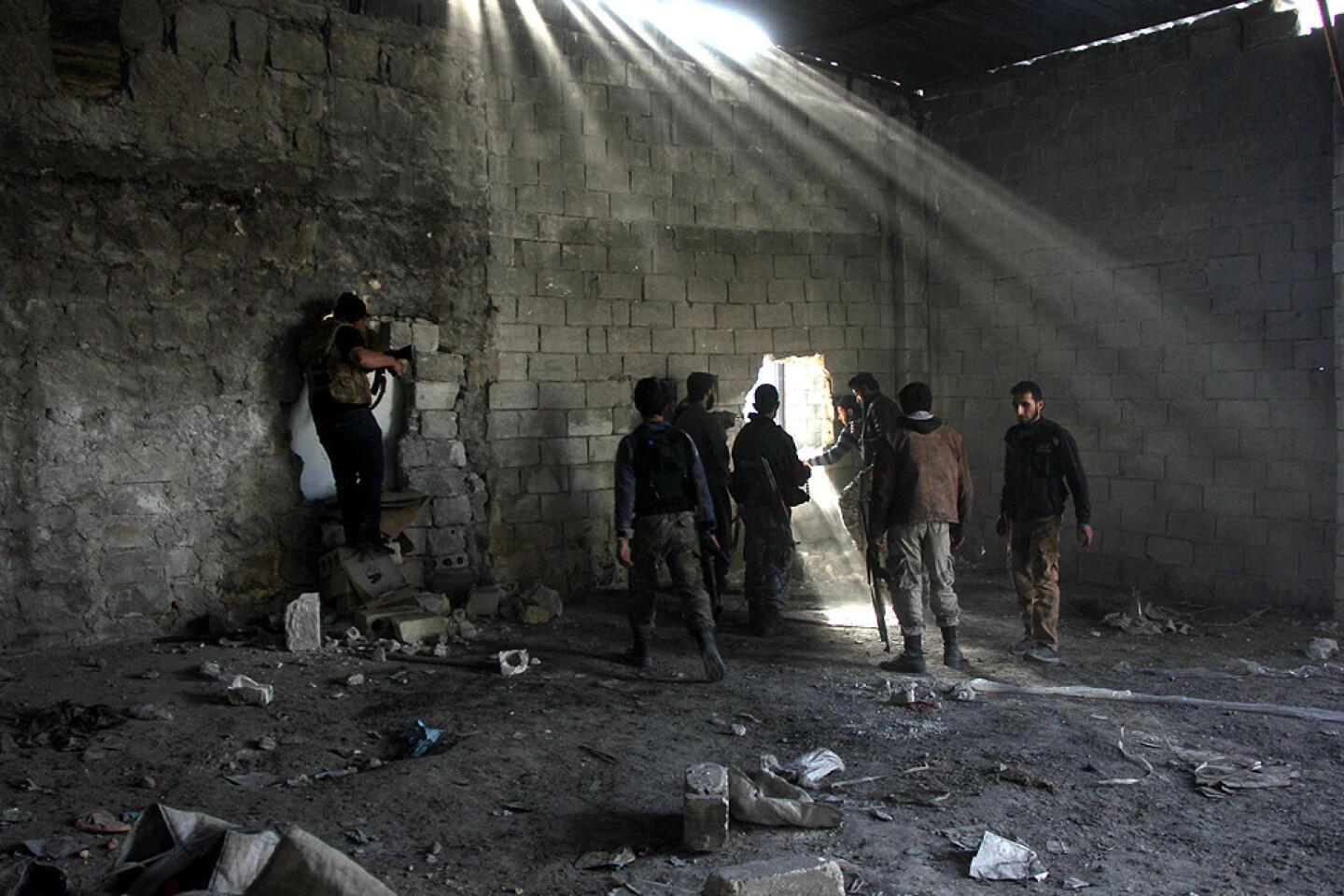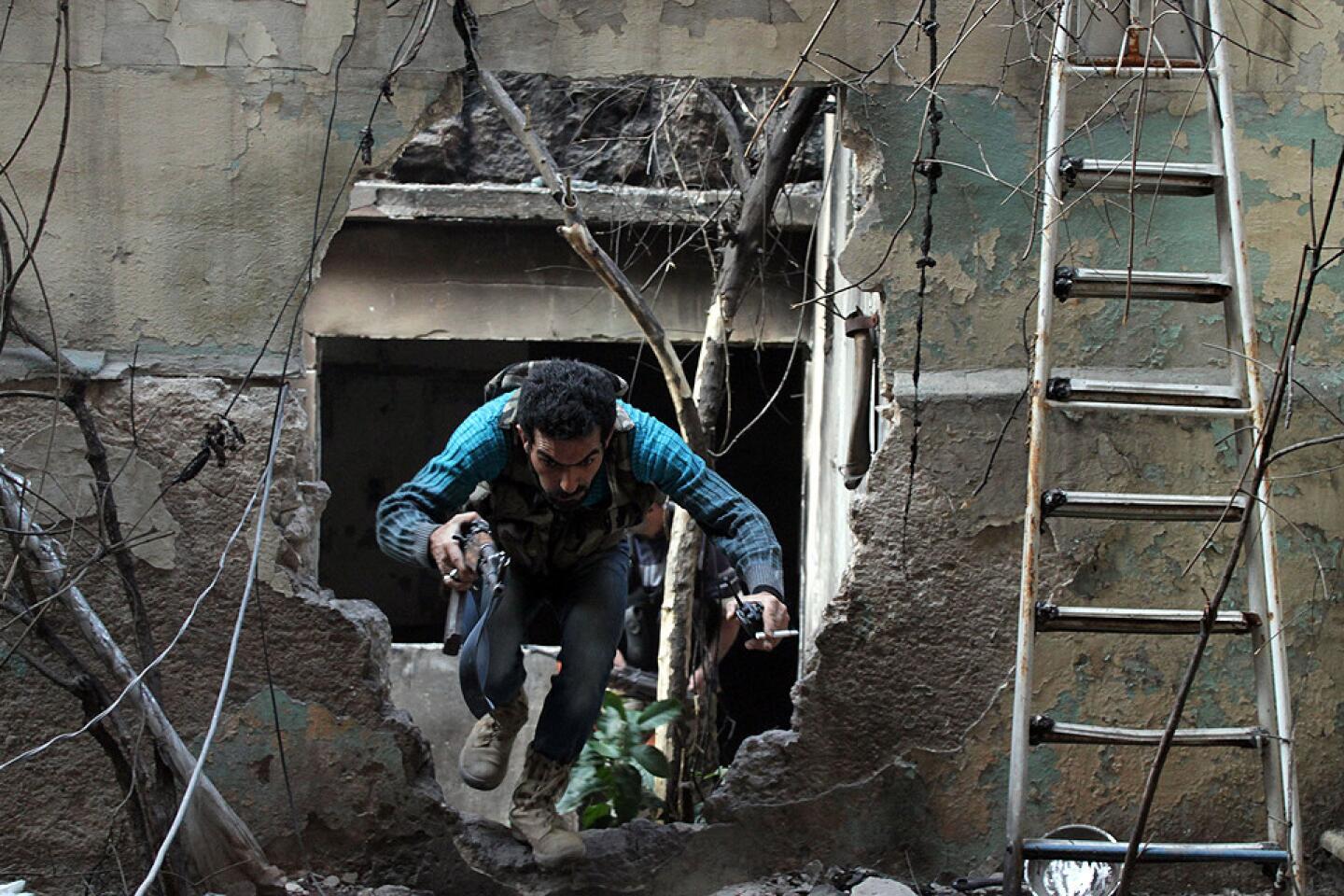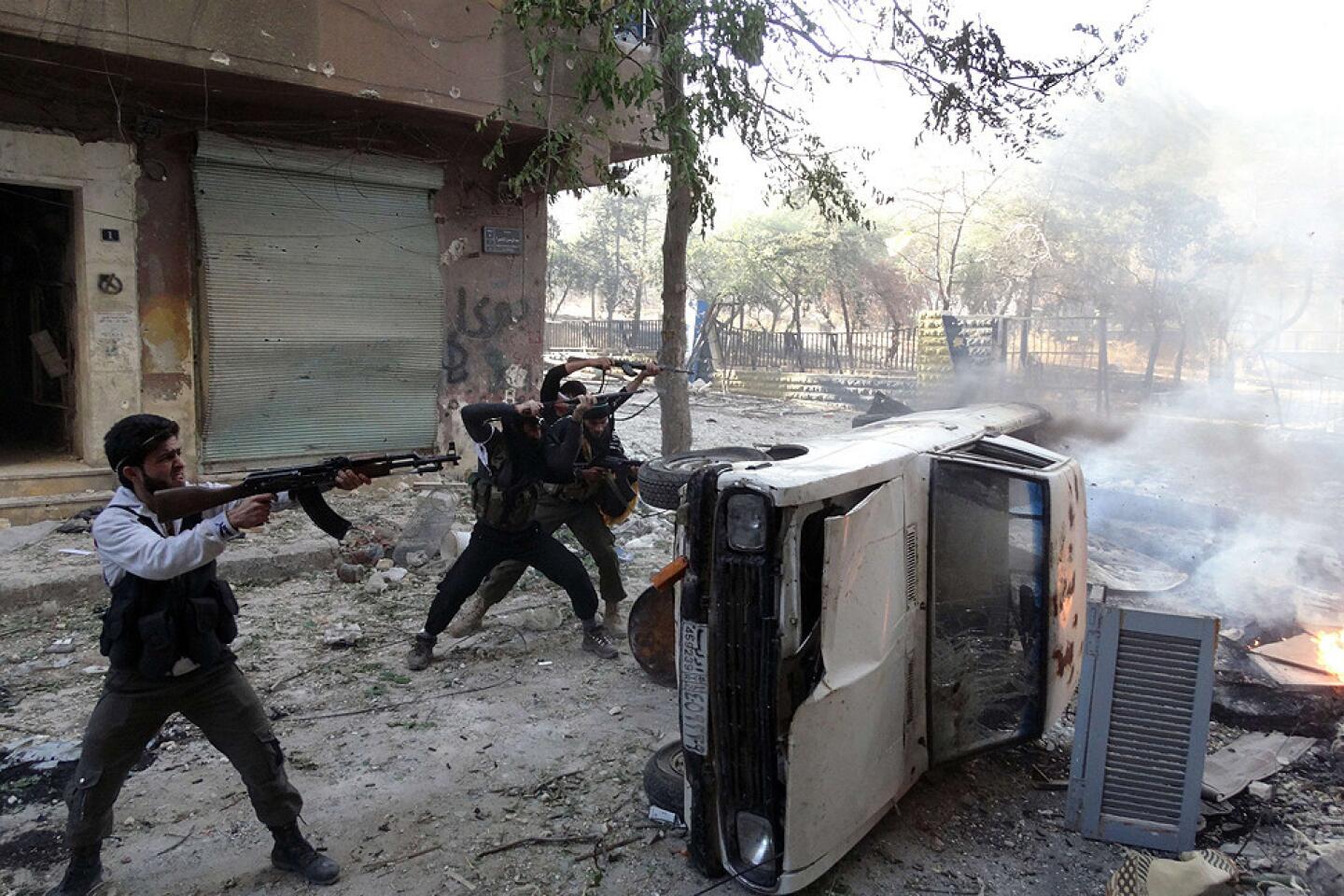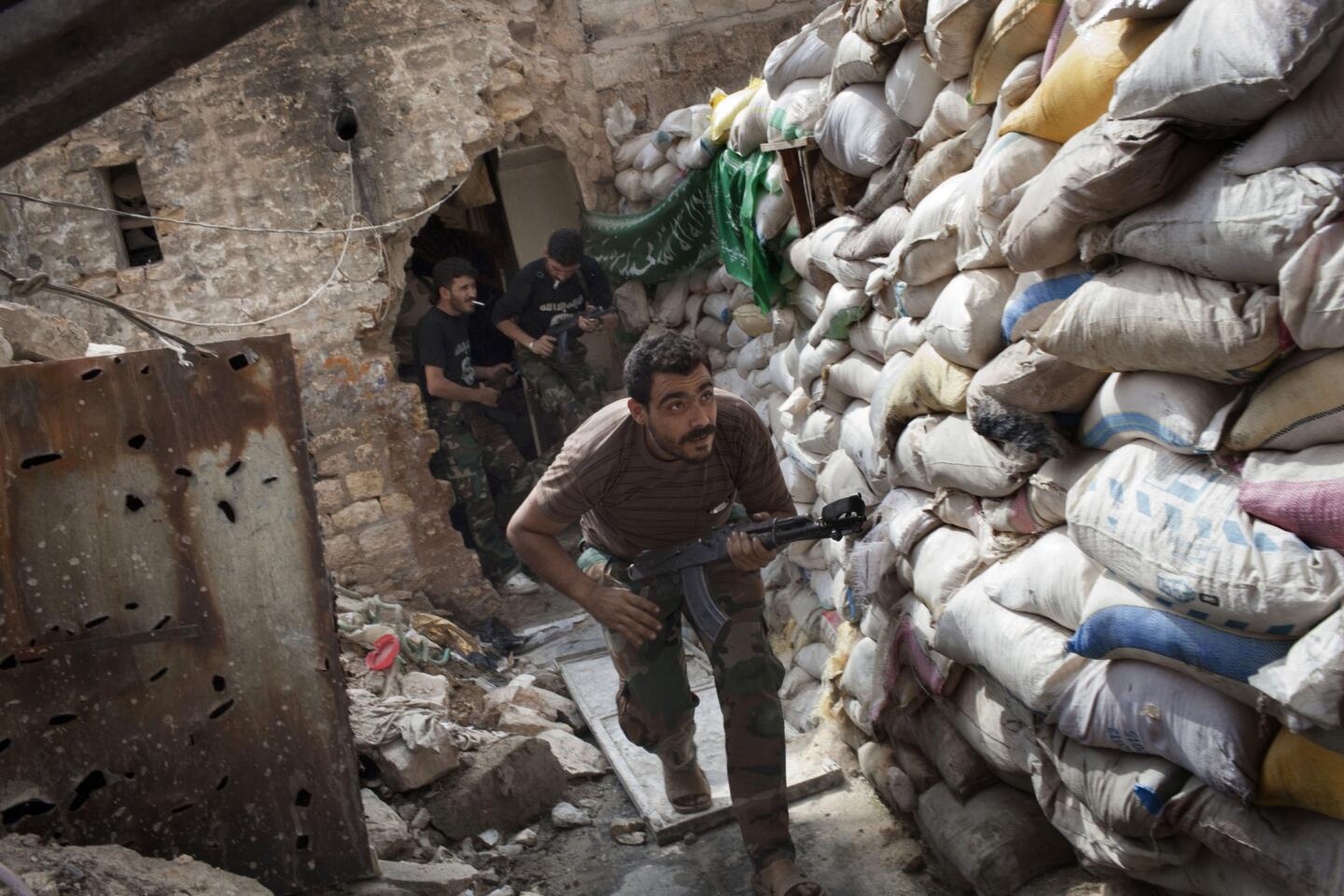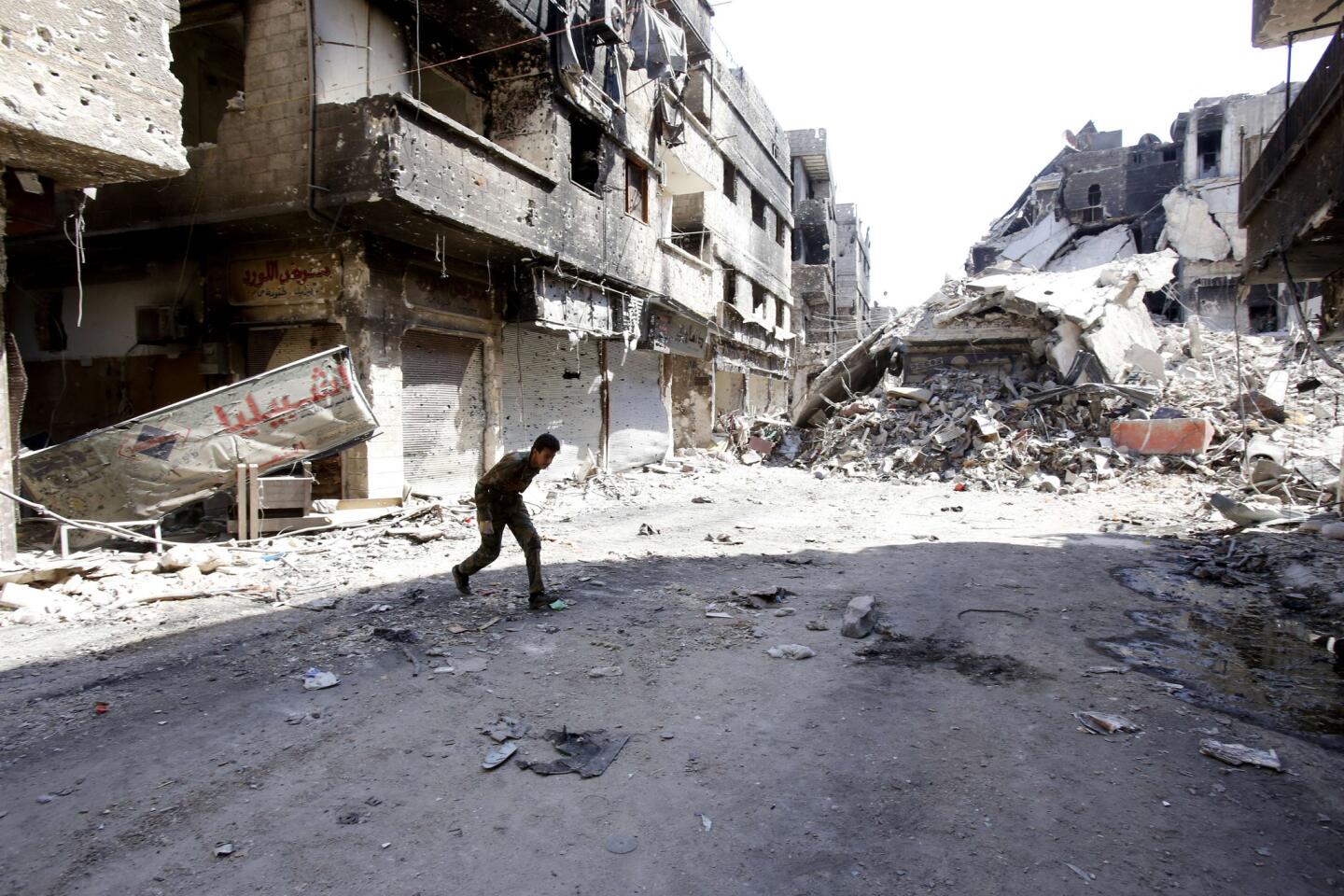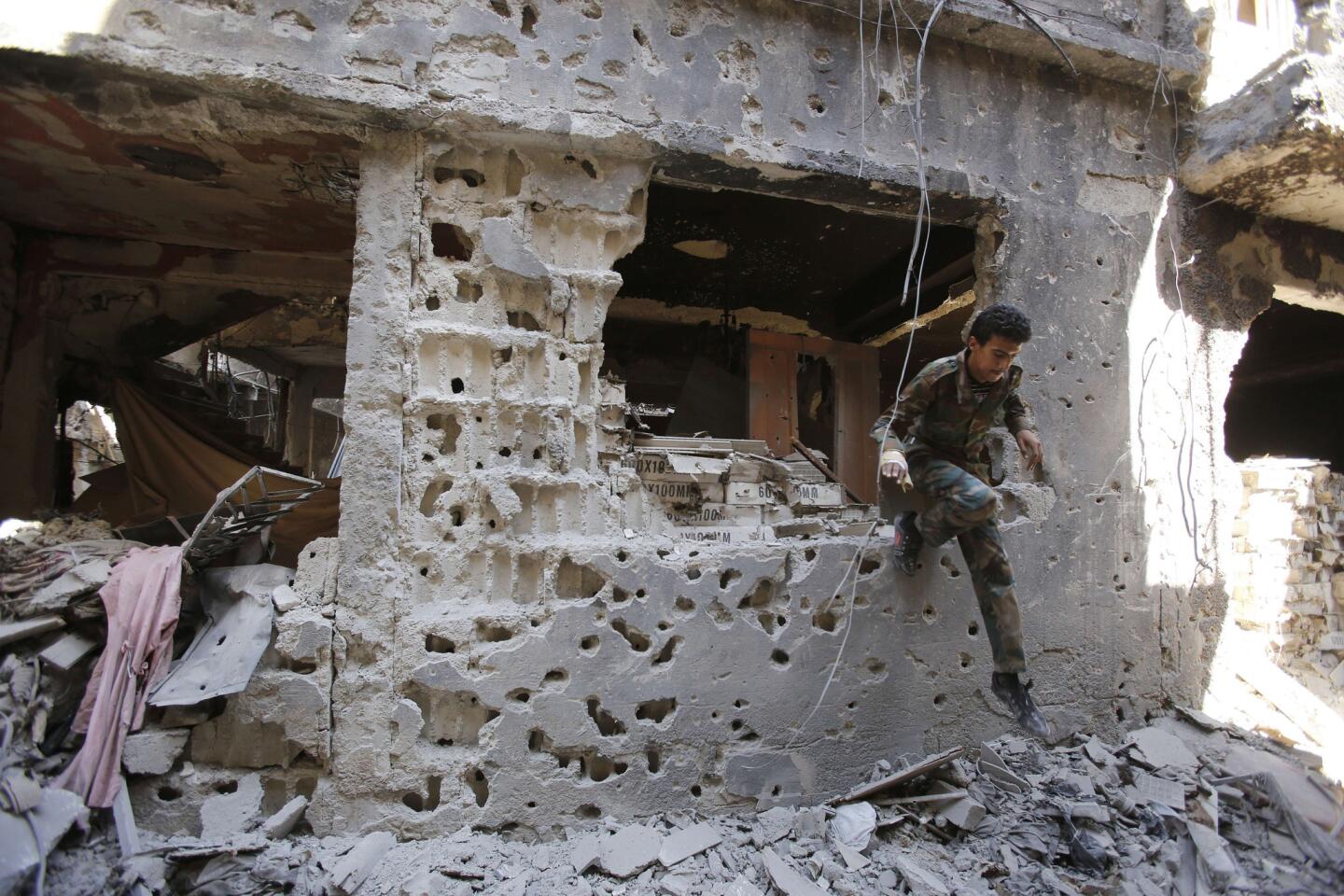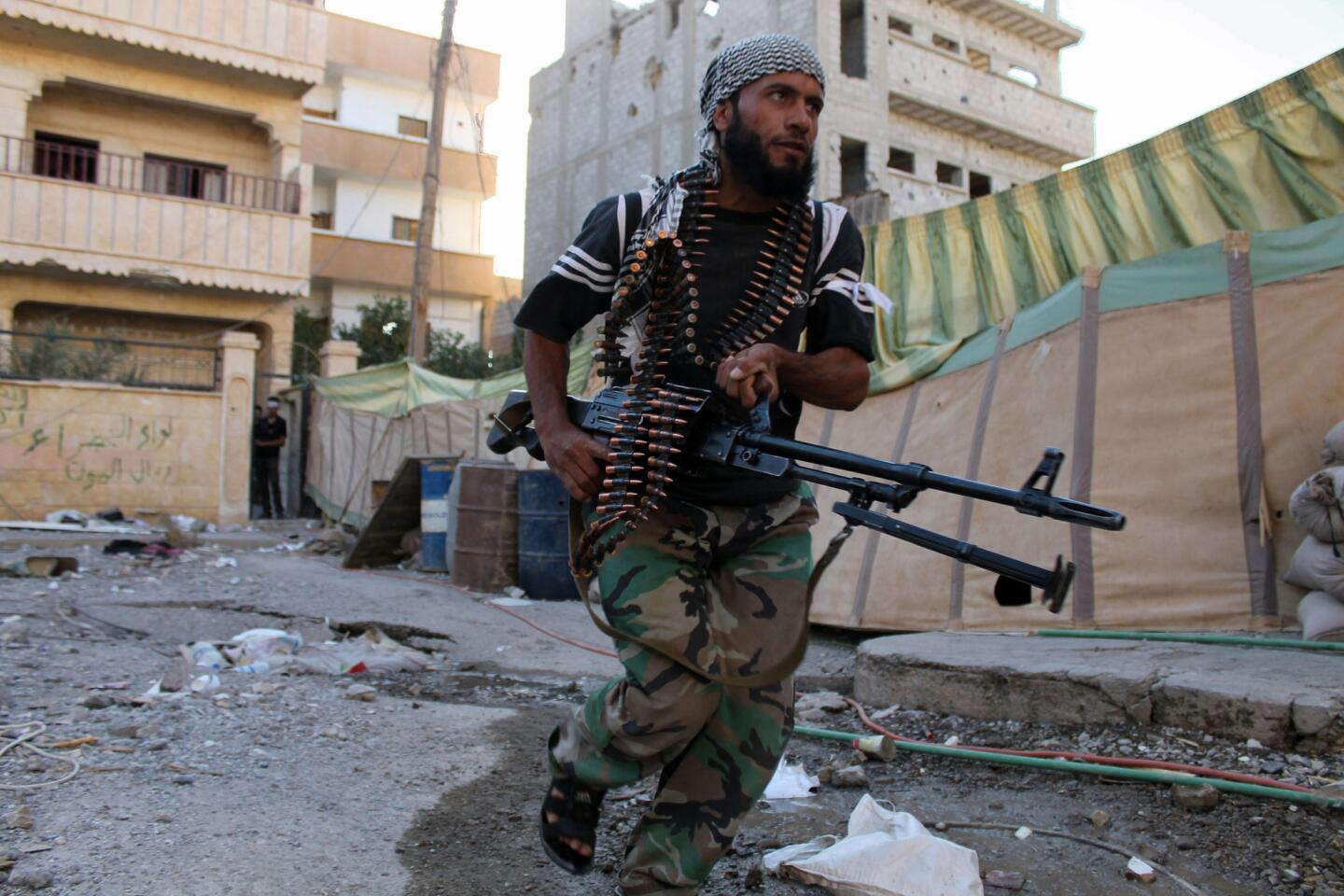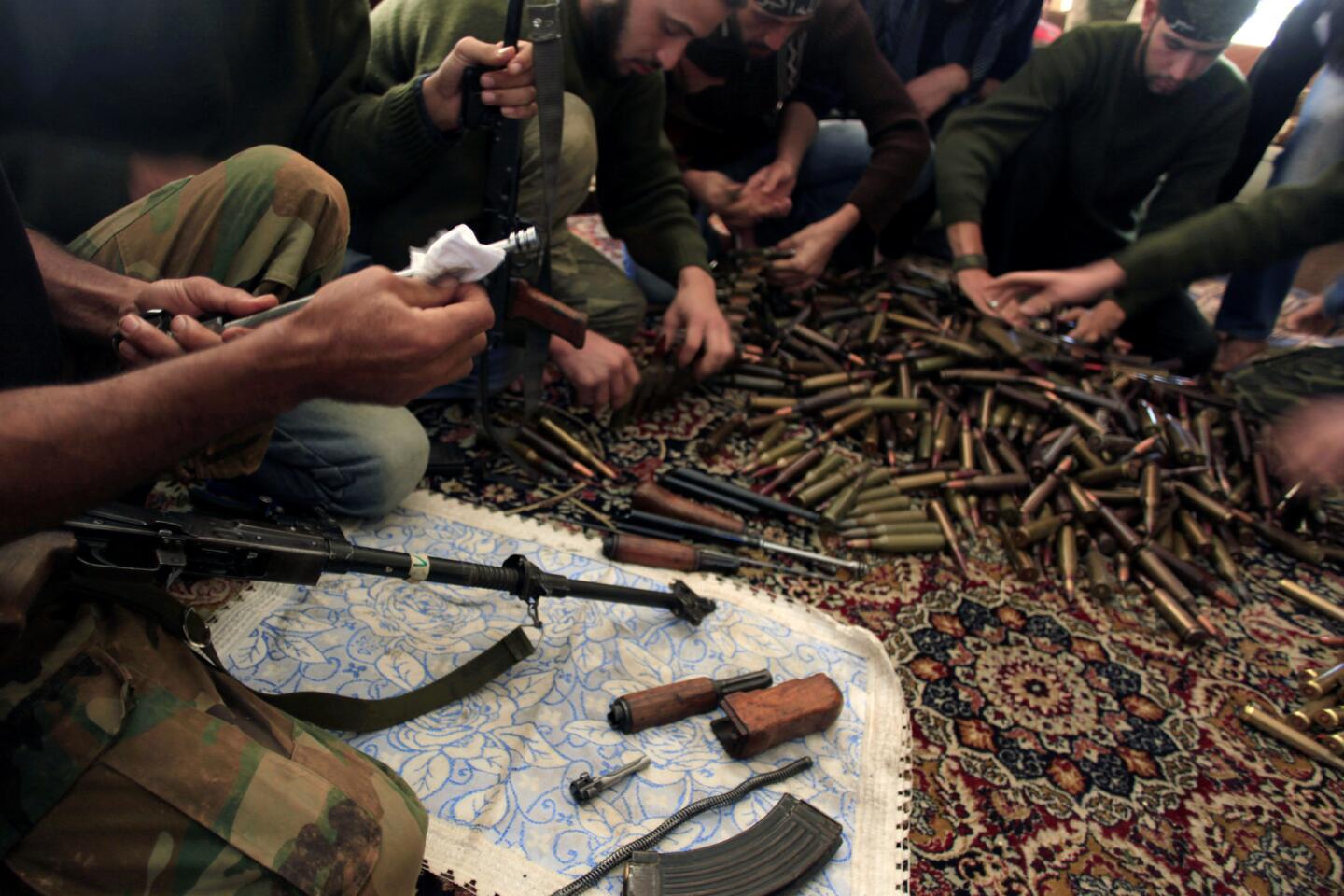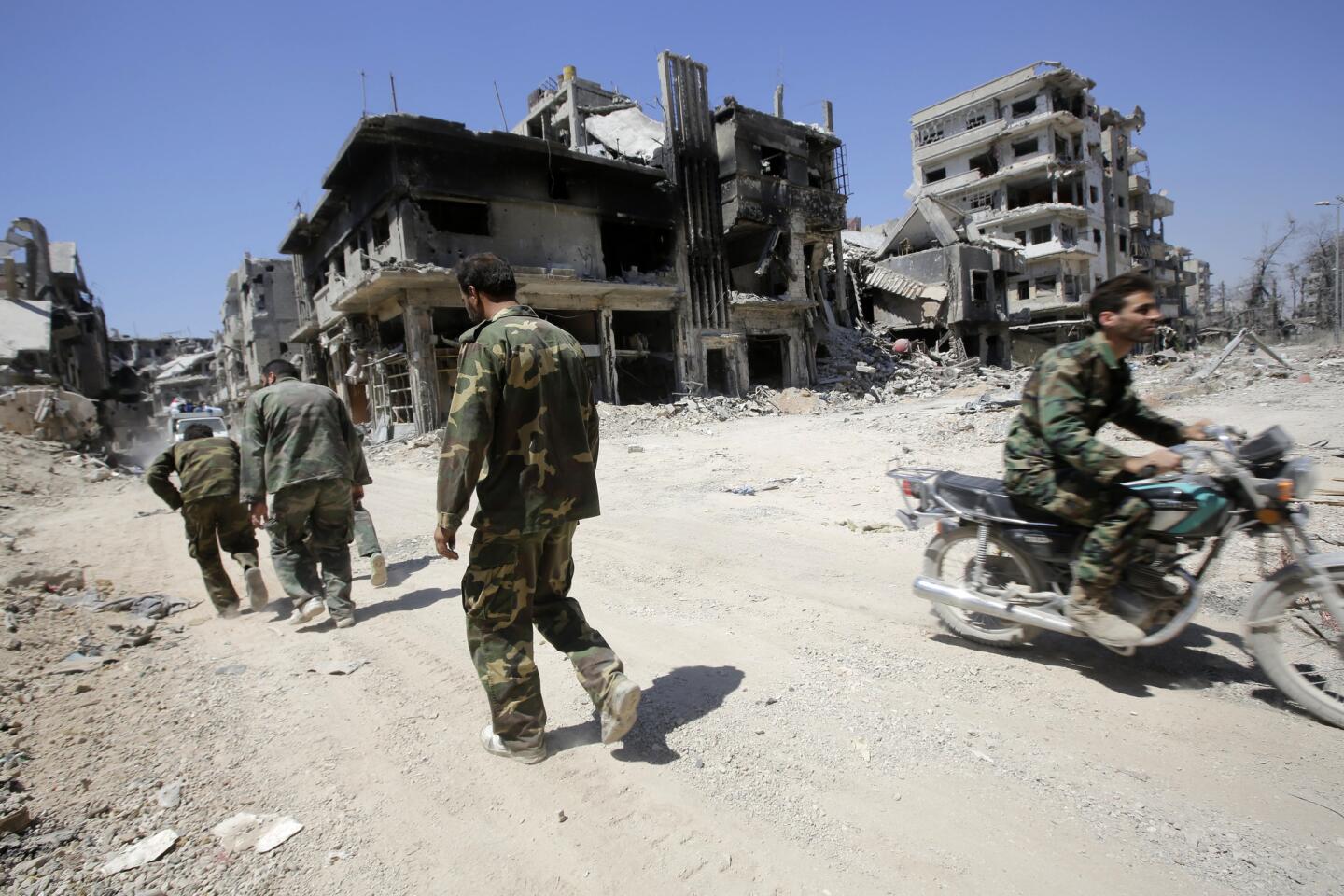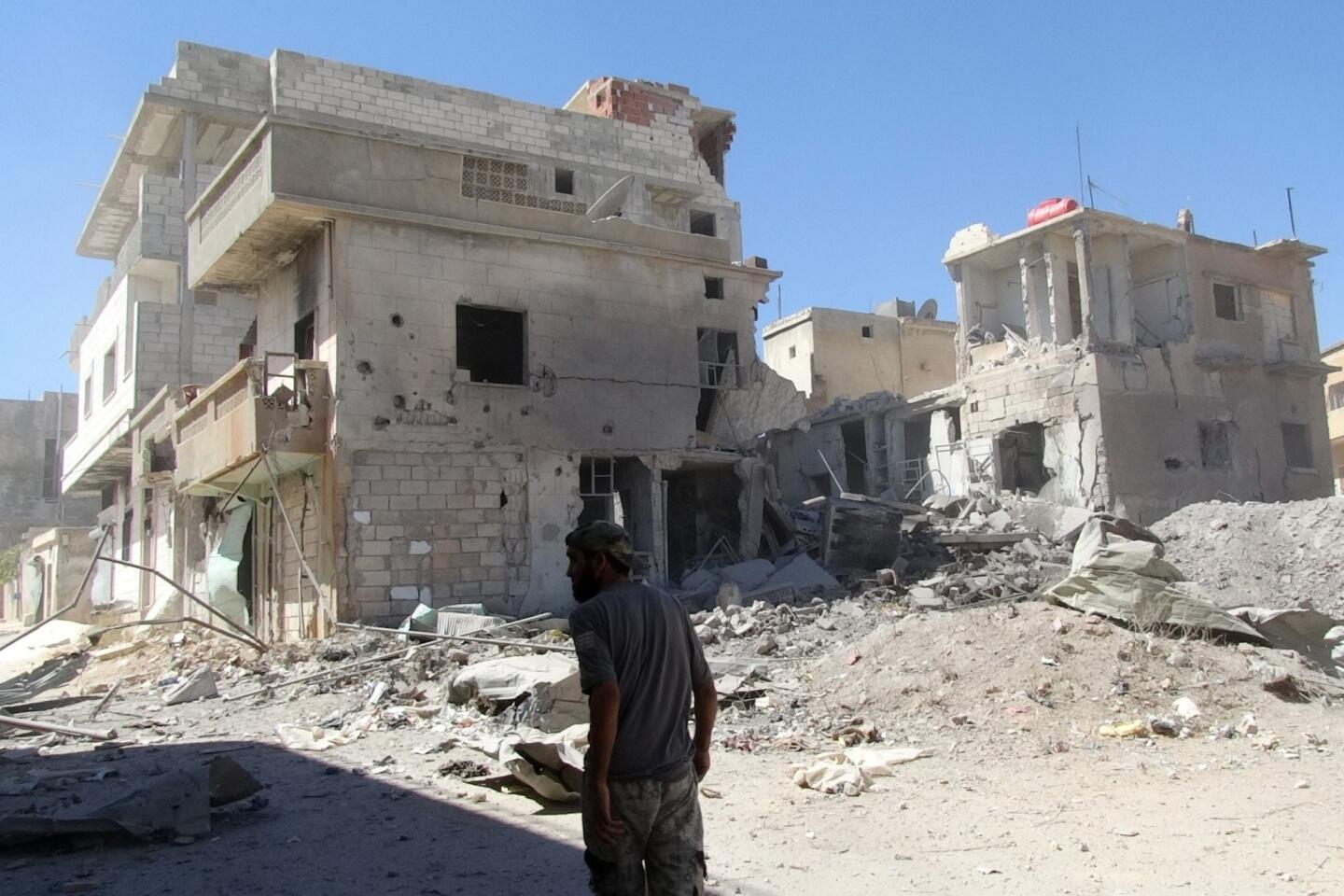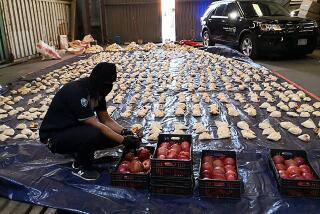Syria unlikely to meet deadline on its deadliest chemical agents
- Share via
WASHINGTON — Syria has delivered less than 5% of its deadliest chemical weapons agents to international authorities a week before a deadline to surrender the entire cache, officials said Wednesday.
The government of President Bashar Assad, which is fighting a bitter civil war against insurgent militias, has transferred about 32 tons of the so-called Category 1 chemical agents to the Syrian port of Latakia, where it has been loaded onto ships for destruction at sea.
But about 670 tons remain in collection points, and officials say it is unlikely that Syria will meet the Feb. 5 deadline.
After President Obama threatened to launch punitive attacks on Syrian forces last August to retaliate for a deadly poison gas attack on rebel strongholds, Assad agreed to give up his entire chemical weapons arsenal to international weapons inspectors by June 30, starting with the most dangerous materials.
Experts warned that the schedule might be overly ambitious given the fighting and instability in Syria. But the delay in surrendering the deadliest stockpiles has raised questions about whether Syria is dragging its feet, perhaps to test international resolve.
United Nations Secretary General Ban Ki-moon acknowledged this week that Syria was behind schedule, and urged the Assad government to “intensify its efforts to expedite in-country movements of chemical weapons material and continue to meet its obligations.”
The Obama administration has held out the elimination of Syria’s poison gas threat as a significant accomplishment, although international efforts to halt the Syrian civil war have made little progress.
President Obama cited the program Tuesday in his State of the Union address, saying “American diplomacy, backed by the threat of force, is why Syria’s chemical weapons are being eliminated.”
State Department officials declined to comment on the progress.
Some veteran weapons inspectors have warned all along that Assad might try to retain some of the stockpiles despite his pledges. The Syrian arsenal, one of the largest in the world, included mustard gas, a blister agent, and sarin, a nerve gas, at several dozen sites.
In addition to the Category 1 chemical agents, Syria also declared 500 tons of less dangerous precursor chemicals and 122 tons of isopropanol, a solvent widely used in industry.
The Hague-based Organization for the Prohibition of Chemical Weapons, which is overseeing the collection and destruction of the chemical weapons along with the U.N., is scheduled to consider Syria’s performance when its executive council meets Thursday.
More to Read
Sign up for Essential California
The most important California stories and recommendations in your inbox every morning.
You may occasionally receive promotional content from the Los Angeles Times.
